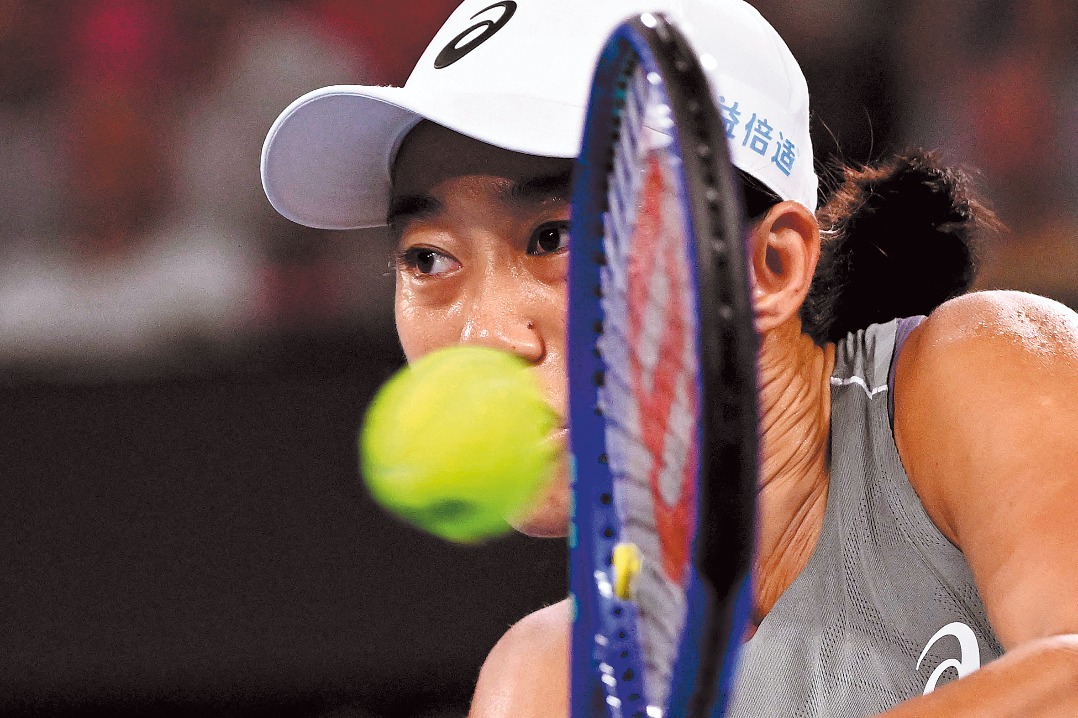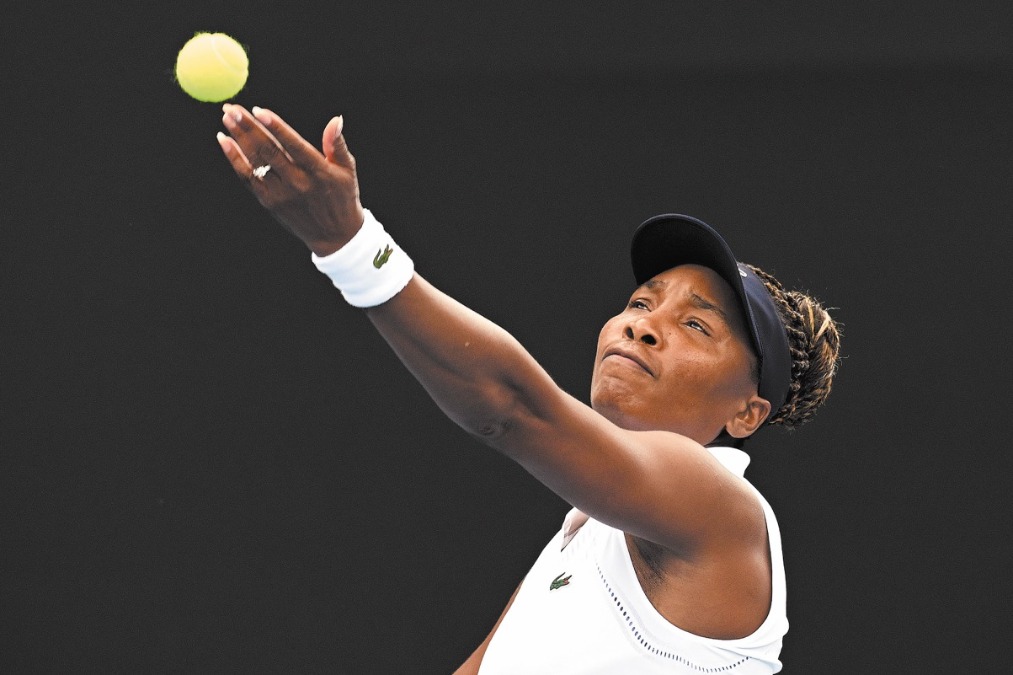China helping to shape a fairer future

International community praises nation's role in fight against doping

With its efforts helping to introduce a new testing method to the world, the China Anti-Doping Agency has reiterated its commitment to innovation and exchange to safeguard clean competition.
As technology reshapes the anti-doping landscape, China's contribution to developing and implementing the Dried Blood Spot project-an advanced testing and analysis method-earned international acclaim at a recent webinar.
The procedure was routinely implemented at the Beijing 2022 Winter Olympics, its first scaled application at a major international event. The DBS method earned positive feedback from athletes, doping control officers and anti-doping agencies involved in the webinar.
"The DBS method provides a valuable supplement to the traditional urine and venous blood testing. It represents the future of more efficient and athlete-friendly doping control efforts," Chen Zhiyu, director general of CHINADA, said during the 2nd CHINADA International Anti-Doping Symposium last week.
"And we are so proud to have taken a leading role in the development and application of the method together with the World Anti-Doping Agency and relevant national organizations and agencies."
Themed "Innovation for Clean Sport", the two-day symposium shed light on the latest scientific developments in the fight against doping in sports, with speakers from CHINADA, WADA, the International Testing Agency and national and regional organizations sharing research findings, practices and innovations via videoconference.
Citing the benefits of DBS at Beijing 2022, WADA president Witold Banka stressed the need for more international cooperation in the field. He also hailed China's role as an important partner in the new science-driven era of anti-doping.
"I want to thank China for its ongoing support of WADA. This support has come in many ways, not least through the presence on our foundation board," Banka said in his opening remarks at the webinar.
"But also China has played an important collaborative role in developing WADA's 2020-2024 strategic plan, advocating the recent governance reforms and making important additional financial contributions."
DBS testing takes only a few drops of blood from an athlete's fingertip to dry on blotting paper, which then allows scientists to test for certain substances.
WADA and CHINADA will keep working together to develop more affordable DBS sampling equipment, train testing personnel and upgrade laboratories. Currently, the CoreShell collector, developed by China, remains the only eligible and international recognized sampling device for DBS analysis, according to Chen.
Taking only a few minutes, the DBS method saves waiting time compared to the traditional blood-testing procedure, and is comparatively more convenient and less painful. Moreover, the DBS sample requires no refrigeration and takes up little space, making storage and transportation easier.
"There are many advantages, especially in regard to cost and making the process less invasive for athletes. DBS will allow more athletes to be tested and more samples to be collected," said Banka, a retired 400 meter runner of Poland.
Attending the webinar virtually, China's Olympic champion snowboarder Su Yiming confessed to being a little nervous when taking his first DBS test in 2021.
"But after the doping control officer explained the sampling process to me, I was free of worries," said Su, who won China's first snowboarding Olympic gold medal in men's Big Air in Beijing.
"Unlike the blood test before, I didn't need to stay seated for a long period of time and there was much less piercing pain than the venous blood sampling. The entire process took only about 10 minutes."
Another key topic during the symposium was the roles artificial intelligence and big-data technology are expected to play in doping control.
China, as one of the few countries that has integrated these technologies into its national doping control system, has a lot to offer in that regard, said Chen.
"We have developed the China Anti-Doping Intelligent Management System, which worked well at last year's National Games," he said.
Last year, CHINADA conducted a record 26,320 doping tests, while the AI-enhanced system has made data analysis and potential doping violation detection easier and smarter, according to Chen.
"You need to identify where there is a high risk of doping, and this system really helps save costs and improves efficiency," added Chen.
"We are willing to develop functions catering to the needs of other anti-doping agencies and share the management system with them so as to contribute to the global anti-doping cause."
sunxiaochen@chinadaily.com.cn
Most Popular
- China's northernmost province embraces ice and snow sports craze
- Tributes pour in after passing of Go legend Nie, 73
- China's extreme sports season opens with underwater dance event
- China reaches knockout stage for first time in AFC U23 Asian Cup
- China ties Iraq 0-0 in its U23 Asian Cup opening match
- A learning curve





























